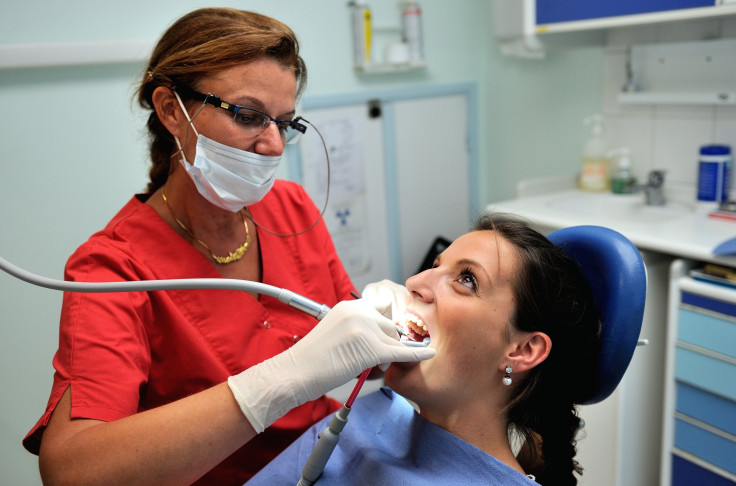Signs Of Pancreatic Cancer Include These Bacteria Living In The Mouth

For many people, good oral health means having few to no cavities and going to the grave with their natural teeth intact. While strong teeth are an excellent, invaluable gift, there’s actually more to dental health than just these basics. In fact, scientific research suggests a susceptibility to cavities and gum disease could signal pancreatic cancer.
A new NYU Langone Medical Center study explores this relationship between cancer and dental health, diving even deeper into the details. The scientists discovered the presence of specific bacteria in the mouth may indicate an increased risk for pancreatic cancer. They say their results suggest a fresh way to detect this form of cancer, which the American Cancer Society predicts will kill more than 40,000 people this year.
Your mouth speaks volumes about your health, says the American Dental Association. Both infections and nutritional deficiencies usually make their appearance known in the mouth: through sores along the inner lining, gums, lips, or tongue. Your general health and that of your mouth are one and the same and both need you to protect them.
Good oral hygiene is a routine practice that consists of brushing your teeth at least twice a day, every day, with a fluoride toothpaste; cleaning between your teeth at least once a day with floss or some other cleaner; replacing your toothbrush every three to four months; eating a nutritious and balanced diet; and limiting between-meal snacks (especially sugary sweets). Visits to the dentist can also contribute to positive oral health. If you are experiencing extreme tooth pain, you will probably pick up the phone to call the dentist, but other signs also flash the red light telling you to make an appointment.
Red, tender, swollen, or bleeding gums need to be looked at by a dentist. Loose teeth and changes in alignment also require a professional eye. Unusual sensitivity to hot and cold indicates something is wrong. Finally, you would be smart to learn why you are experiencing some persistent, unusual taste or consistent bad breath: call a dentist!
Now, most people will be given news no worse than a tooth needs to come out… ouch! However, there are slim odds the matter might be far more serious. After all, pancreatic cancer patients are known to be vulnerable to poor oral health, in general, and gum disease and cavities, in particular. Usually, this form of cancer causes no symptoms until it is well-developed, probably because this slender gland is located deep within the abdomen. The pancreas releases hormones into the bloodstream to control levels of blood sugar and produces enzymes to help with digestion. It makes perfect intuitive sense, then, our mouths might be the siren, alerting us that something has gone deadly wrong with this gland so intimately connected to food and digestion.
So, taking a more nuanced look at pancreatic cancer and oral hygiene, the NYU research team compared the bacterial contents in mouthwash samples from more than 700 Americans. Dr. Xiaozhou Fan, lead researcher, and Dr. Jiyoung Ahn, senior researcher, say all of the participants were healthy at the start of their cancer-risk study. In fact, the study began when researchers first obtained mouthwash samples from healthy participants, who continued to be monitored for nearly a decade to see who got cancer. Over time, 361 men and women developed pancreatic cancer and they could be matched to 371 people of similar age, gender, and ethnic origin who did not.
Comparing the oral bacteria, the researchers discovered men and women whose mouths contained the bacterium Porphyromonas gingivalis had a 59 percent greater risk of developing pancreatic cancer. Similarly, Aggregatibacter actinomycetemcomitans signaled at least a 50 percent likelihood of developing the disease. Both bacteria have been linked to periodontitis (inflammation of the gums).
The researchers believe their study indicates a new way to possibly prevent the disease is within reach. Early warning and early treatment almost always boost a patient’s odds of surviving cancer.
Source: Fan X, Alekseyenko AV, Wu J, et al. Human oral microbiome and prospective risk for pancreatic cancer: a population based, nested case control study. American Association for Cancer Research Annual Meeting. 2016.



























